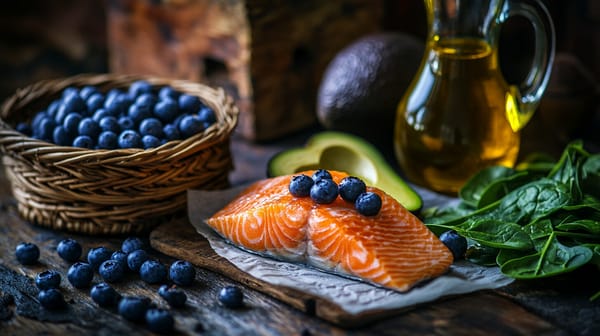Uncover 8 Surprising Reasons Why You Feel Ravenous All Day

Protein and Fiber Intake May Be Insufficient
Consuming adequate protein, fat, and fiber is crucial for sustained energy and satiety. High-protein snacks have been shown to reduce hunger and keep people fuller for longer periods. Foods rich in protein and fiber are most effective at generating a feeling of fullness.
Distractions During Meals Can Hinder Fullness Cues
Rushing through meals while distracted by devices or other activities makes it difficult for the body to recognize fullness. Mindful eating practices, like focusing on the sensory experience of food, can enhance satiety and curb emotional eating.
Eating Too Quickly Interferes with Satiety Signals
Devouring meals and snacks rapidly hinders the body's ability to register fullness. Allocating enough time for meals, taking sips of water between bites, and tuning into the body's satiety cues can prevent overeating.
Hormonal Imbalances May Stimulate Appetite
Elevated cortisol from chronic stress can trigger increased appetite and cravings for palatable foods. Hormonal shifts during menstruation may also temporarily boost hunger and desire for specific foods. Developing non-food coping strategies for stress is key.
Underestimating Daily Energy Expenditure
Increased physical activity, whether from exercise or life changes like pregnancy and parenting, burns more calories and can ramp up appetite. Tracking food intake and aiming for a balance of calories in vs. out can ensure adequate fueling.
Thirst Mistaken for Hunger Pangs
Studies show people frequently confuse thirst for hunger. Staying well hydrated by sipping water consistently throughout the day can prevent misinterpreting thirst cues as a need to eat.
Sleep Deprivation Dysregulates Hunger Hormones
Inadequate sleep is linked to increased levels of the appetite-stimulating hormone ghrelin and decreased levels of leptin, a satiety hormone. Prioritizing quality sleep and avoiding late meals and alcohol can help regulate hunger.
Under Fueling Intensifies Hunger Signals
Eating too few calories to sustain biological needs, whether from dieting or a fast metabolism, can lead to constant hunger that manifests as low energy, poor concentration, and food preoccupation. Consult with a dietitian to develop an individualized plan to meet nutritional needs.
By understanding these common yet often overlooked causes of incessant hunger, you can begin to develop practical strategies to tune into true hunger cues, stabilize appetite-regulating hormones, and nourish your body more mindfully. With consistent healthy habits, feelings of ravenous hunger all day long can subside, freeing up mental energy for the things that matter most.




